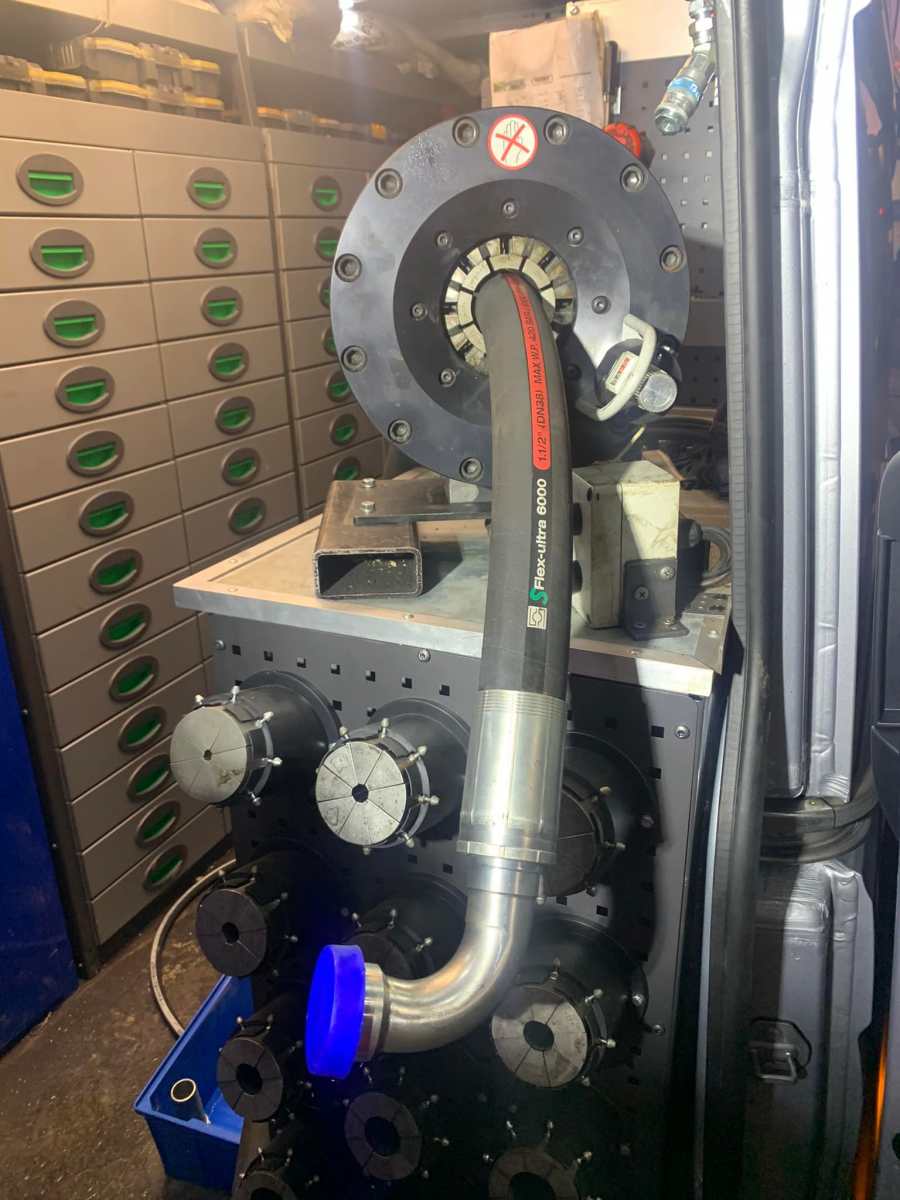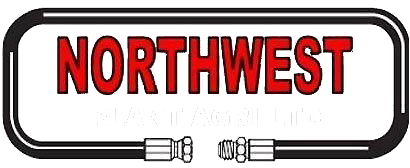We are your No 1 service for hydraulic hoses in Manchester.
We offer a complete range of quality hydraulic hoses in Manchester. At Northwest Plant Agri Ltd, we have a proven track record of getting machines back up and running in the fastest possible time reducing downtime We take great pride in our work, and our aim is to exceed customer satisfaction, every time. Based in Manchester.
Where is a hydraulic hose used?
Hydraulic hoses are used to transport fluid to or between hydraulic components. They are an essential part of any large system and need to be designed to be resistant to any of the potential hazards. We provide the vital, high quality, safe connection for your hydraulic equipment.
A hydraulic hose is a specialist type of hose that you’ll find in many commercial and industrial settings. Hydraulic hoses are typically constructed from flexible rubber or wire, and feature a series of layers to give the hose its strength and durability. These layers comprise of an inner tube, a reinforced layer and an outer layer.
High Quality Hydraulic Hoses in Manchester
We provide a wide range of hydraulic hoses. From low-pressure to ultra-high pressure hose assemblies, and from application-specific systems to versatile fluid compatibility.
All the work carried out by Northwest Plant Agri Ltd is of the highest standard and we have been successfully completing work for satisfied clients in Manchester and the surrounding areas for many years.
With Northwest Plant Agri Ltd you are in the safe hands of a reliable and trustworthy company who can meet all your individual needs and demands. Our aim is to not only create a better hydraulic system, but also manages to be aesthetically pleasing

WHAT ARE HYDRAULIC HOSES MADE OF?
Typically, hydraulic hose has 3 main layers. Firstly, the inner tube used to carry the fluid. This must be compatible with the type of fluid it will carry and also must offer some flexibility. Secondly, the reinforcement layer which offers the strength and determines the working pressure of the hose. The 3 most common types of reinforcement are braided, spiral and helical. Finally, the outer cover is often weather, oil and abrasion resistant, dependent on the type of environment it will be used in.
This adds an extra layer of protection. Our extensive line of hydraulic hose and fittings are suitable for low, medium and high-pressure applications.
Hydraulic Hose Assemblies in Manchester
Hydraulic hose assemblies consist of a hydraulic hose with fittings at the end, ready to be installed into a hydraulic system. Hydraulic hose assemblies feature a flexible hose that is used to transport fluid from one component to another within a hydraulic mechanism or machine. The pre-installed connectors make assemblies ideal for easy integration into your system.
The hydraulic hose is usually made from a flexible rubber or wire, while the hose fittings are often made from a corrosion-resistant metal, such as stainless steel. Hydraulic hoses are often used in high-pressure environments so are required to be flexible and strong.
WHAT ARE HYDRAULIC HOSES MADE OF?
Typically, hydraulic hose has 3 main layers. Firstly, the inner tube used to carry the fluid. This must be compatible with the type of fluid it will carry and also must offer some flexibility. Secondly, the reinforcement layer which offers the strength and determines the working pressure of the hose. The 3 most common types of reinforcement are braided, spiral and helical. Finally, the outer cover is often weather, oil and abrasion resistant, dependent on the type of environment it will be used in.
This adds an extra layer of protection. Our extensive line of hydraulic hose and fittings are suitable for low, medium and high-pressure applications.
Different Types of Hydraulic Hoses
Hydraulic hoses are an essential part of many industrial systems, as they provide a secure, reliable connection between components that have to withstand high levels of pressure. They come in a variety of designs and materials to suit the specific needs of the application. Depending on the environment and working conditions, some types are better suited than others.
The most common type is thermoplastic hose, which is lightweight and easy to work with. This hose consists of an inner layer of synthetic rubber or polyamide encased in a tough outer shell for protection. It can withstand extreme temperatures and pressures, making it ideal for hydraulic applications where heat is present. However, it does not offer much chemical resistance and is prone to abrasion if used frequently in harsh environments.
Rubber hoses are highly versatile since they offer excellent flexibility and durability, regardless of the application’s operating temperature range or pressure levels. The inner tube is made from synthetic rubber while the outer covering is usually made from braided fabric or metal mesh for superior strength. Rubber hoses can be reinforced with layers of textile yarn or wire mesh to increase their temperature range and chemical resistance capabilities.
For extremely high-pressure applications, steel-reinforced hoses are often used as these provide greater strength and durability compared to other types. Steel-reinforced hoses consist of an inner tube covered with an outer layer made from steel wire-reinforced rubber or thermoplastic sheathing for additional strength and longevity.
The braided hose has a flexible design which makes it suitable for tight spaces and hard-to-reach areas such as engine compartments and wheel wells where they can be bent into tight turns without kinking or collapsing under pressure. This type consists of a tubular core wrapped in the flexible braided wire which provides structural integrity when subjected to extreme pressures at high temperatures. It also offers higher burst resistance than other varieties, making it ideal for hydraulic fluid transfer lines where safety must be taken into account.
